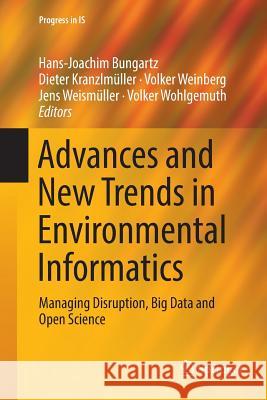Advances and New Trends in Environmental Informatics: Managing Disruption, Big Data and Open Science » książka
topmenu
Advances and New Trends in Environmental Informatics: Managing Disruption, Big Data and Open Science
ISBN-13: 9783030076191 / Angielski / Miękka / 2018 / 260 str.
Advances and New Trends in Environmental Informatics: Managing Disruption, Big Data and Open Science
ISBN-13: 9783030076191 / Angielski / Miękka / 2018 / 260 str.
cena 402,53
(netto: 383,36 VAT: 5%)
Najniższa cena z 30 dni: 385,52
(netto: 383,36 VAT: 5%)
Najniższa cena z 30 dni: 385,52
Termin realizacji zamówienia:
ok. 16-18 dni roboczych.
ok. 16-18 dni roboczych.
Darmowa dostawa!
Kategorie:
Kategorie BISAC:
Wydawca:
Springer
Seria wydawnicza:
Język:
Angielski
ISBN-13:
9783030076191
Rok wydania:
2018
Wydanie:
Softcover Repri
Numer serii:
000445205
Ilość stron:
260
Waga:
0.39 kg
Wymiary:
23.39 x 15.6 x 1.47
Oprawa:
Miękka
Wolumenów:
01
Dodatkowe informacje:
Wydanie ilustrowane











